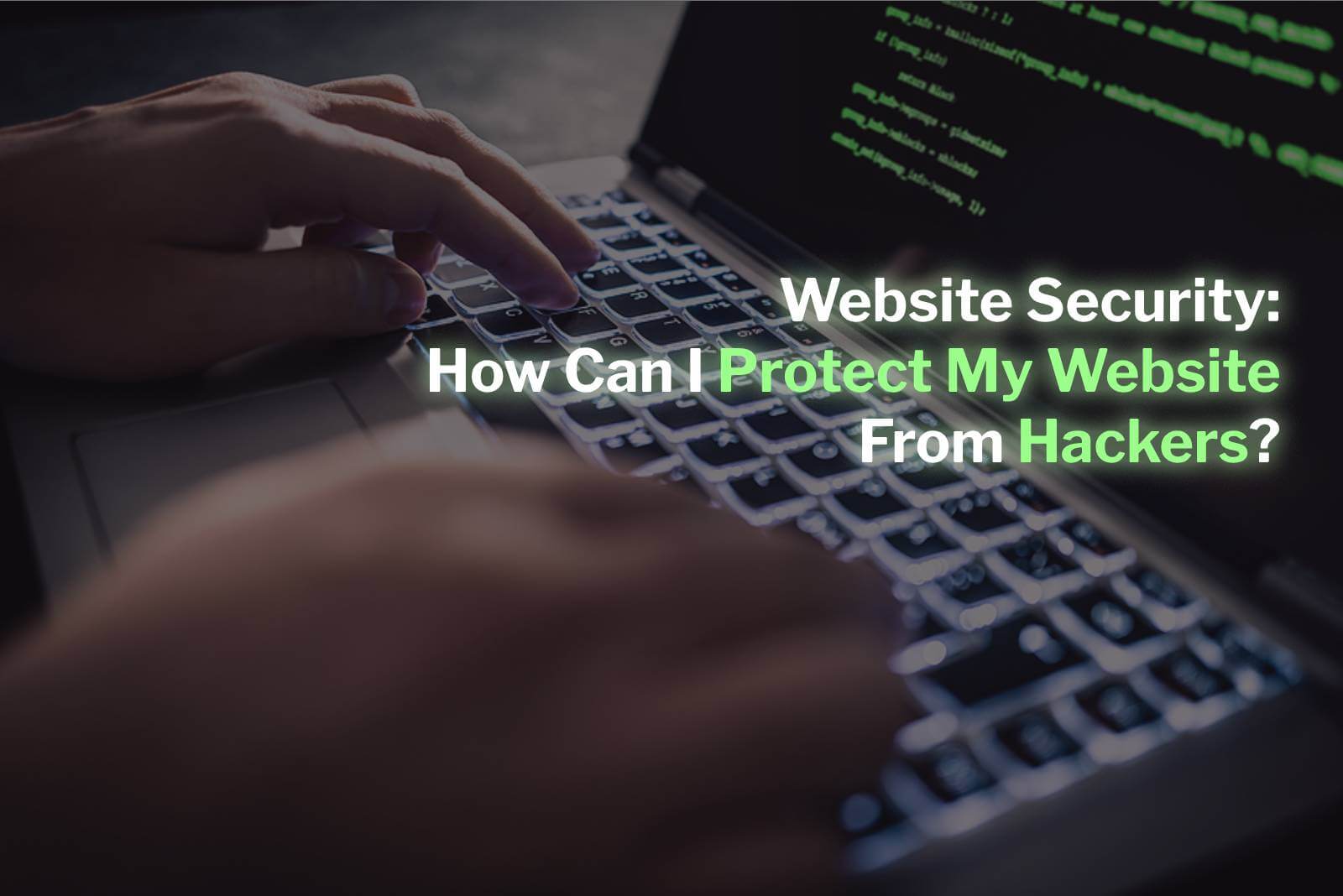
Website security is a significant concern, no matter how big or small your brand is.
While many brands understand the need to ensure adequate website security, many do not know where to start, especially when designing a new website, maintaining their current website, or migrating to a new web developer tool.
Protecting your website from malicious hackers can be a complicated affair, and there are several types of website security strategies, depending on the scope and size of your website, such as a disaster recovery plan, locking down your web provider account, virtual private network (VPN), web application security, and cloud security.
No matter whether you are a large brand with a dedicated team of cybersecurity professionals or a small brand with minimal resources, nobody can avoid hack attempts. As such, we are here to help by offering you our know-how on protecting your website.
Why do hackers hack websites?
Most hackers hack websites to gain access to three things:
- Malware: They distribute malware under the pretence of plug-ins and flash players that install virus-infected files onto the user’s computer.
- Website traffic: By gaining access to your website traffic, they are able to redirect them away from your website and into theirs.
- Your SMTP server: They are able to tap onto your relay server to distribute spam emails to hundreds of emails daily until your hosting provider shuts it down, affecting your day-to-day emails.
Once your website has been hacked, the damage can be costly in terms of network breaches and its impact on both your brand and customers. A concerning fact is that it usually takes approximately three to six months to realise that your website has been hacked. By the time you realised it, your brand’s reputability, as well as vital data, would have been impaired.
Hence, robust and solid website security is imperative.
What can you do to protect your website?
Before you engage a website design company, such as EFUSION, to design your brand’s website, always check with them about the type of security practices they have in place. Some of the points you can touch on are:
1. Firewalls
Firewalls are network security devices that monitor all incoming and outgoing network traffic, allowing or blocking specific traffic depending on a “pre-configured” set of security rules. Depending on what you require, firewalls can come in various forms, such as cloud-native firewalls, virtual firewalls, next-generation firewalls (NGFW), threat-focused NGFW, unified threat management firewalls, or proxy firewalls.
2. Data backup
With a proper data backup strategy, you are able to retain and restore a safe copy of your website should it be hacked and everything you and your web service provider tried fails. Hence, you should find a web provider that offers data backup services so that you do not risk losing everything should you be hacked.
3. Sandbox development
Sandbox development involves creating a mirrored version of your website and making incremental changes to it. This method enables extensive testing for vulnerabilities and bugs before updating it on the actual site for publishing. Not many website design companies do this because it can be a time-consuming strategy.
4. Data encryption or SSL
SSL certificates are a vital aspect of eCommerce web design services and are actually required by Google Chrome in order to be listed as a safe website. SSL certificates are security protocols that create an encrypted link between the web browser and web server, securing all digital transactions and keeping customers’ information secure and private.
5. CDN and DDoS
Distribute Denial of Service (DDoS) is a strategy used by hackers that involves sending an overwhelming traffic and data volume to the website in the shortest amount of time such that it crashes the website, taking it offline.
This situation can be prevented by having a DDoS document in place so that the server is able to monitor and filter every traffic, detecting when certain IP addresses are accessing your site too quickly.
Content Delivery Network (CDN) helps to cache your web content and offers tons of benefits to website owners, such as providing an additional layer of security against DDoS and reducing bandwidth consumption by boosting page load time and processing.
6. Brute force detection
A brute force attack involves hackers using automated software that runs a series of login guesses to access your website. So, rather than trying to access your website through loopholes, this method involves an “authentic” login with “legitimate” access.
There are several ways to prevent such attacks, such as utilising plug-ins or applications that limit the permitted number of login attempts or modifying your CMS login into an intranet so that it enables only specific IP addresses from accessing your backend system.
Conclusion
No matter how extensive or simple your website is, you are not able to avoid website hacks. However, you can implement security measures to protect your website from such attacks, establishing a strong brand reputation among your users.
Here at EFUSION, we understand the importance of having a secure website. Hence, all our web design solutions, from eCommerce to corporate and CMS website development services, are kept up-to-date with the latest suite of security features in addition to proactive detection to close vulnerabilities, protect your brand site, and mitigate any potential risk. Contact us to get started on a secure and responsive web design today!

